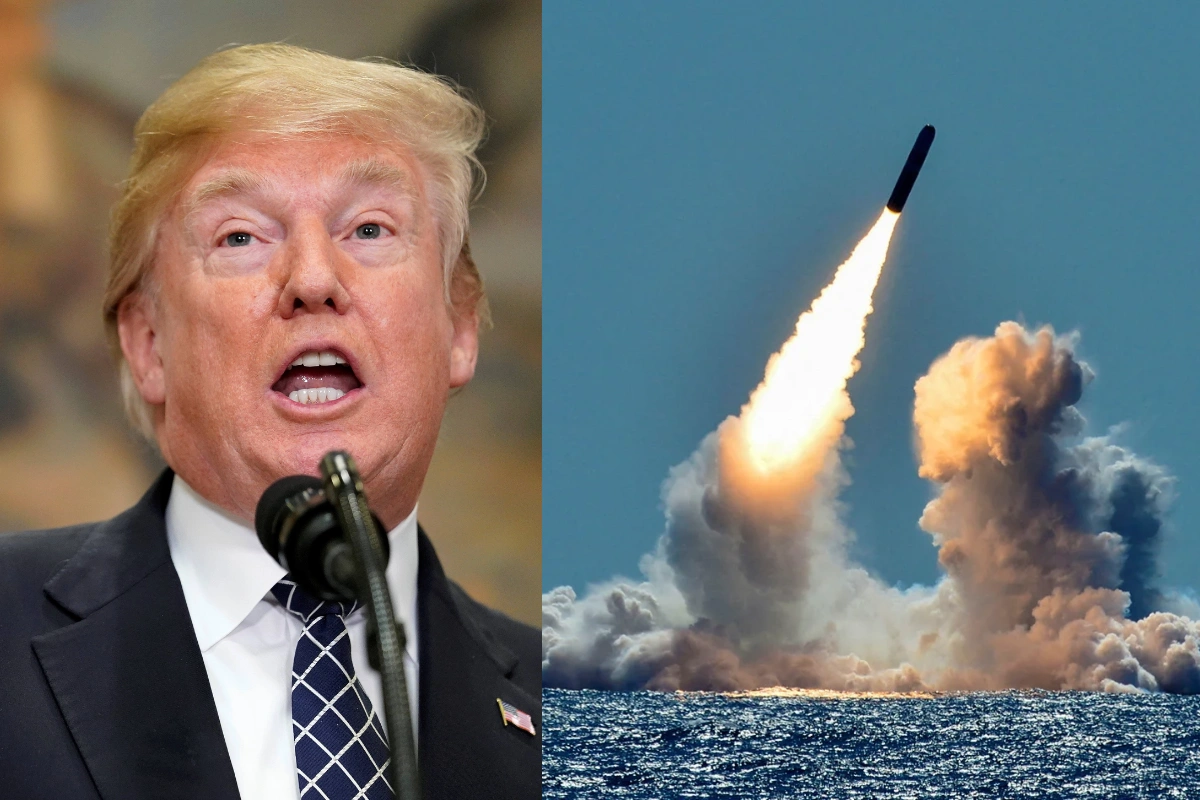In a major development with reverberations felt across the globe, U.S. President Donald Trump has directed the Pentagon to begin nuclear detonations once again, prompting an end to a moratorium on underground nuclear testing that has lasted for 30 years.
The announcement, made late Wednesday following extensive high-level defense deliberations, comes as tensions rise with both Russia and China, which the U.S. accuses of conducting “low-yield” nuclear tests in violation of established norms against testing on a global Level.
‘We Will Not Fall Behind’: Trump Indicates
“Before you speak, US President Trump said from the White House, “The US is not going to remain dormant while other nations secretly get more nuclear capability.”
“America will always maintain peace through strength,” he continued. “If our adversaries are testing, we will test stronger, faster, and smarter than them.”
The order instructs the Department of Defense and Department of Energy to prepare to conduct ‘limited, controlled detonations’ at the Nevada National Security Site represents the first U.S. nuclear tests in over 30 years, since 1992.
DON'T MISS
Russia and China in the Spotlight
Recent U.S. intelligence estimates indicate Moscow and Beijing have conducted subcritical nuclear activities underground at an accelerated rate in recent years. Pentagon officials suggest the testing may have given the two countries an opportunity to obtain “advanced data regarding next-generation warheads.” The Trump administration asserts the tests should resume in order to “ensure reliability” and “maintain deterrence credibility” in the face of new global threats. The Kremlin responded strongly against the development and warned that it could “unleash a new arms race.” China condemned the announcement as “deeply irresponsible,” and accused Washington of “destabilizing the international security environment.” An Experts Concern about Global Consequences
Nuclear experts and disarmament advocates have described Trump’s order as a former step back that reverses decades of progress by the Comprehensive Nuclear-Test-Ban Treaty (CTBT) — an agreement signed by the U.S., but never ratified. Analysts are likely to expect reciprocal tests from nuclear states such as India, Pakistan, and North Korea, potentially undoing existing efforts from non-proliferation treaties. Dr. Elena Kovacs, a senior analyst who specializes in nuclear policy at the Stockholm International Peace Research Institute (SIPRI), said, “Essentially this means restarting the arms race again. The price in diplomacy will likely be huge.”
What Is Coming
This action has ignited fierce debate within the United States. Proponents believe that testing a nuclear weapon is necessary to maintain strategic dominance, while those against the decision view it as an unnecessary step towards instability at a time when international cooperation is impossible.
While the Pentagon prepares its facilities, the world will be closely watching — not sure if this is a temporary display of power, or the beginning of a new era of nuclear testing.
For the world, President Trump’s executive order does not just reopen the Nevada desert to testing, it reopens a chapter in history that many hoped was no longer possible.
